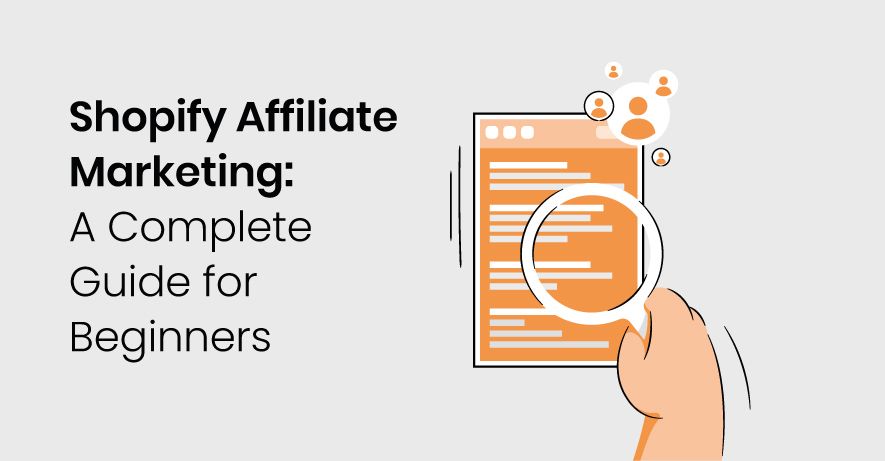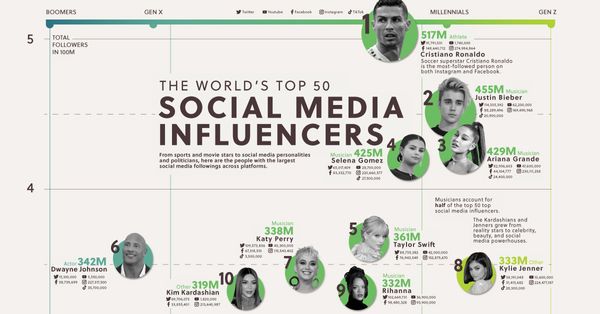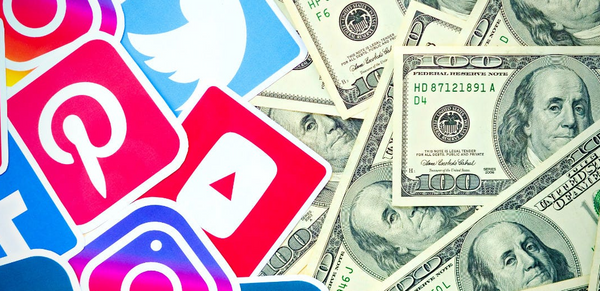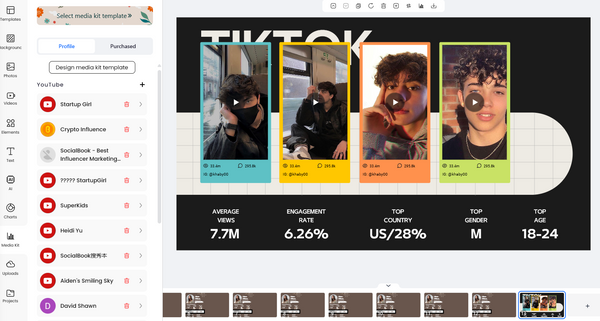In today's competitive ecommerce landscape, influencer marketing has become a crucial strategy for Shopify store owners to drive traffic and boost sales. However, accurately tracking each influencer's performance and calculating ROI remains a significant challenge. This comprehensive guide will show you how to systematically track influencer campaigns, with a special focus on how SocialBook's Campaign Affiliate feature can streamline this process and maximize your marketing ROI.
Why Shopify Sellers Need Professional Influencer Tracking?
Gone are the days of simple "post-and-pray" influencer marketing. Modern ecommerce requires data-driven strategies. According to Shopify's official data, stores working with influencers typically achieve 5-10X return on investment - but only when they can accurately track each influencer's actual performance.
Traditional tracking methods (like Excel spreadsheets or manual order matching) present several problems:
- Inaccurate data: Difficulty distinguishing between organic and influencer-driven traffic
- Inefficient processes: Time-consuming manual work prone to errors
- Lack of real-time insights: Inability to adjust strategies promptly
- Complex commission calculations: Especially when multiple influencers promote the same product
Shopify's recent acquisition of influencer marketing platform Dovetale and launch of Collabs highlights the platform's recognition of the need for systematic influencer management tools. SocialBook's Campaign Affiliate feature provides a more comprehensive, professional solution.
5 Basic Methods for Tracking Influencer Performance
Before exploring professional solutions, let's examine several fundamental tracking methods that can be used individually or combined:
1. Unique Discount Codes
Creating exclusive discount codes for each influencer is the simplest tracking method. In your Shopify admin, navigate to Discounts > Create discount code and set parameters like expiration date or usage limits.
Pros: Easy setup, no additional tools needed
Cons: Can't track conversions without code use; codes may be shared, skewing data
2. Custom Tracking Links
Generate unique tracking links for each influencer using UTM parameters or affiliate marketing plugins like AffiliateWP or ReferralCandy.
UTM Example:
yourstore.com/product?utm_source=instagram&utm_medium=influencer&utm_campaign=username
Pros: Tracks click-through and conversion paths
Cons: Requires influencer cooperation; can't track verbal recommendations
3. Shopify Order Analysis
Filter orders by source in your Shopify admin (Orders > Filter by source/medium) and analyze with Google Analytics for deeper insights.
Pros: Uses native Shopify functionality
Cons: Broad data granularity; can't pinpoint individual influencers
4. Pixel/Event Tracking
Implement conversion tracking via Facebook Pixel or Google Tag Manager by creating unique event tags for each influencer.
Pros: Technically precise, cross-platform tracking
Cons: Complex setup requiring technical knowledge
5. Influencer Self-Reporting
Request screenshots of platform analytics (Instagram Insights, YouTube Analytics) and compare with your store data.
Pros: Accesses influencer-side detailed data
Cons: Relies on influencer cooperation; hard to verify authenticity
SocialBook Campaign Affiliate: The Professional Solution
For Shopify stores looking to scale influencer marketing, basic methods often prove insufficient. SocialBook's Campaign Affiliate offers an end-to-end solution from influencer discovery to performance tracking, ideal for mid-to-large size Shopify stores.
Core Features
Automated Influencer Recruitment
- AI-powered matching from 10M+ global influencer database
- Filter by location, follower count, engagement rate
- Quality assessment system
Dedicated Affiliate Links
- Tamper-proof tracking links for each influencer
- Automatic click, add-to-cart, conversion recording
- Supports multi-tier referral systems
Real-Time Dashboard
- Visual performance metrics for each influencer
- Key metrics: CTR, CR, ROAS
- Custom report exports
Smart Commission Management
- Fixed amount, percentage, or hybrid models
- Automatic calculations to reduce errors
- Built-in fraud prevention
Seamless Shopify Integration
- One-click store connection
- Automatic product catalog sync
- Real-time inventory updates
How to Use Campaign Affiliate?
Step 1: Create Campaign
- Log in to SocialBook > Campaign Affiliate
- Set name, duration, KPIs
- Select Shopify products to promote
Step 2: Recruit Influencers
- Use smart search to find relevant influencers
- Review historical performance data
- Send batch invitations with customizable templates
Step 3: Assign Tracking Assets
- System automatically generates for each influencer:
- Unique tracking link
- Optional discount code
- Cross-platform tracking pixel
Step 4: Monitor Performance
- View overall campaign metrics
- Analyze individual influencer contributions
- Identify top performers
Step 5: Optimize & Pay
- Automatic commission reports
- Multiple payment options
- Data-driven strategy refinement
Unique Advantages
Compared to Shopify Collabs or other tools, SocialBook excels in:
- Global Influencer Network: Covers key markets (US, EU, SEA, etc.)
- Deep Analytics: Audience demographics, engagement quality
- Automation: Saves 80%+ management time
- Fraud Prevention: Advanced algorithm detects fake traffic
- Flexible Commissions: Tiered rewards, limited-time bonuses
Key Metrics & Optimization Strategies
Tracking isn't enough - you must know how to interpret data and take action:
1. Click-Through Rate (CTR)
Definition: Clicks ÷ Impressions
Benchmarks: Instagram 1-3%, YouTube 3-5%, TikTok 5-8%
Optimization:
- Collaborate on content creativity
- Test different CTAs
- Post during peak hours
2. Conversion Rate (CR)
Definition: Orders ÷ Clicks
Benchmarks: Beauty 2-5%, Apparel 1-3%, Electronics 0.5-1.5%
Optimization:
- Improve landing page experience
- Offer exclusive discounts
- Add trust signals (reviews, badges)
3. Average Order Value (AOV)
Definition: Revenue ÷ Orders
Optimization:
- Create product bundles
- Set up automated upsells
- Offer installment payments
4. Engagement Quality
Definition: Comments, shares, saves
Optimization:
- Prioritize micro-influencers (higher conversion)
- Encourage discussion-sparking content
- Respond to comments promptly
5. ROI
Definition: (Revenue - Cost) ÷ Cost
Optimization:
- Identify high-ROI influencers
- Build long-term partnerships
- Phase out underperformers
Best Practices
Combine SocialBook with these proven strategies:
Tiered Influencer System
- A-tier: High CR, exclusive products, higher commissions
- B-tier: Moderate performance, test different products
- C-tier: Observation list with clear KPIs
Personalized Shopping Experiences
- Custom landing pages
- Tailored product recommendations
- Limited-edition bundles
Automated Communication
- Welcome emails with guidelines
- Regular performance reports
- Holiday/birthday automations
Data-Driven Optimization Cycle
- Test new influencers/content
- Measure key metrics
- Analyze results
- Scale what works
Influencer Community Building
- Private Facebook/Discord groups
- Virtual training sessions
- Reward programs
Case Study: Beauty Brand 142% Sales Increase
Challenge:
- $50K/month Shopify store
- 30% traffic from influencers
- No accurate tracking
- Manual Excel management
Solution:
- Implemented SocialBook Campaign Affiliate
- Generated unique tracking links
- Automated commission payments
- Established tiered rewards
Results (3 months):
- +142% influencer-driven sales ($15K → $36.3K)
- Identified 5 A-tier influencers driving 60% sales
- ROI improved from 1:3 to 1:5.8
- Saved 70% management time (15 → 4-5 hrs/week)
Success Factors:
- Precise tracking eliminated wasted spend
- Data-informed influencer selection
- Automated workflows increased efficiency
FAQ
Q1: How does SocialBook compare to Shopify Collabs?
A: Collabs is basic; SocialBook offers professional features like global influencer network, deeper analytics, and more automation.
Q2: Is SocialBook suitable for small stores?
A: Yes, with scalable plans. Early adoption prevents data chaos when scaling.
Q3: How is traffic quality ensured?
A: Advanced fraud detection: bot identification, behavior analysis, conversion windows.
Q4: What payment methods are supported?
A: PayPal, bank transfer, crypto, with automated tax documents.
Q5: Is Shopify data synced in real-time?
A: Yes, via API integration for orders and inventory.
Conclusion: Transform Influencer Marketing into a Predictable Growth Engine
In today's competitive ecommerce environment, influencer marketing has evolved from "nice-to-have" to "must-have." Without proper tracking, these partnerships remain guesswork - you're investing blindly.
SocialBook's Campaign Affiliate turns influencer marketing from art to science, creating a measurable, optimizable, scalable growth channel. Whether finding the right influencers, tracking performance, or refining strategies, SocialBook delivers professional-grade solutions.
Remember: What gets measured gets improved. Try SocialBook Campaign Affiliate today to launch your data-driven influencer marketing strategy and transform every marketing dollar into measurable sales growth.








